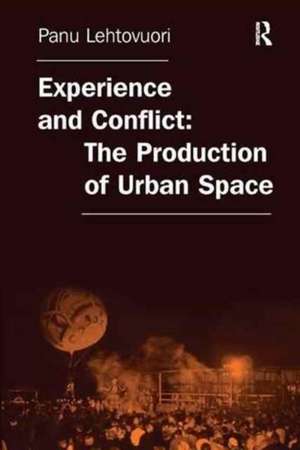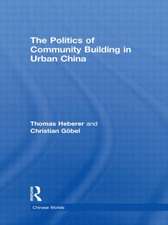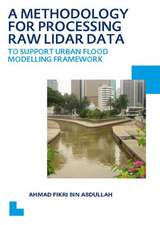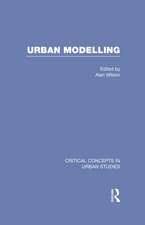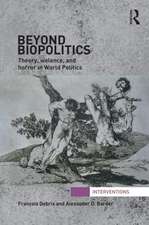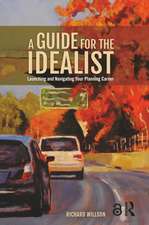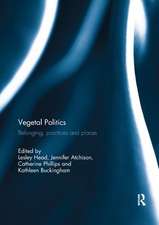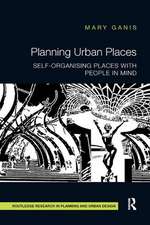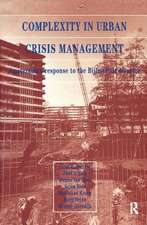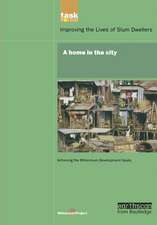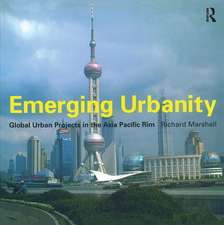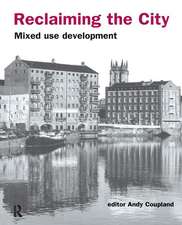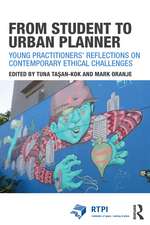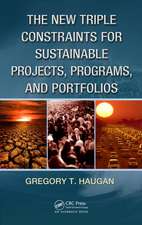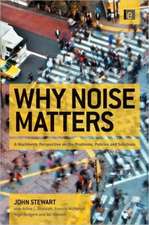Experience and Conflict: The Production of Urban Space
Autor Panu Lehtovuorien Limba Engleză Paperback – 17 noi 2016
| Toate formatele și edițiile | Preț | Express |
|---|---|---|
| Paperback (1) | 338.33 lei 6-8 săpt. | |
| Taylor & Francis – 17 noi 2016 | 338.33 lei 6-8 săpt. | |
| Hardback (1) | 1057.89 lei 6-8 săpt. | |
| Taylor & Francis – 28 dec 2009 | 1057.89 lei 6-8 săpt. |
Preț: 338.33 lei
Preț vechi: 386.77 lei
-13% Nou
Puncte Express: 507
Preț estimativ în valută:
64.74€ • 67.59$ • 53.58£
64.74€ • 67.59$ • 53.58£
Carte tipărită la comandă
Livrare economică 05-19 aprilie
Preluare comenzi: 021 569.72.76
Specificații
ISBN-13: 9781138267848
ISBN-10: 1138267848
Pagini: 272
Dimensiuni: 156 x 234 x 21 mm
Greutate: 0.45 kg
Ediția:1
Editura: Taylor & Francis
Colecția Routledge
Locul publicării:Oxford, United Kingdom
ISBN-10: 1138267848
Pagini: 272
Dimensiuni: 156 x 234 x 21 mm
Greutate: 0.45 kg
Ediția:1
Editura: Taylor & Francis
Colecția Routledge
Locul publicării:Oxford, United Kingdom
Cuprins
Contents: Foreword; Introduction; Part 1 Concept City: Space distanced and objectified; Current conceptualisations of public urban space. Part 2 Moments of Experience: Social space; Weak place. Part 3 Conflicts Assembling Space: Spatial dialectics; Public urban space as the event of assembly. Part 4 Hi-Jacking Helsinki: Urban events producing space; Makasiinit - a lost opportunity. Part 5 Towards Experiential Urbanism: The experiential approach to urban planning; A new paradigm; Afterword; Bibliography; Index
Notă biografică
Panu Lehtovuori, Chair of Urban Studies, Estonian Academy of Arts, Tallinn, Estonia.
Recenzii
'Unfolds urgent insights concerning the nature of public space procreation processes. The legacy of Henri Lefebvre is vividly present in this refreshing approach to the political aesthetics of situations of becoming in the urban landscape.' Sten Gromark, Chalmers School of Architecture, Sweden 'In this perceptive and erudite meditation on space, Lehtovuori effortlessly marries abstract theory to the rich textures of place. Thoughtful and stimulating, this is an outstanding piece of scholarly work.' Robert Beauregard, Columbia University, USA 'This book takes us beyond the vague simplicities of "creative cities" and "creative class" and into the gritty reality of urban life. It does not attempt to hide conflict behind iconic architecture and cafe bars but faces squarely the contested reality faced by any programme for urban change. It is a critical book - but one that serves citizens not simply marketeers and real estate developers.' Justin O'Connor, Queensland University of Technology, Australia 'This scholarly critical work encompasses and develops large corpus of knowledge into a new thoughtful and stimulating paradigm. It confronts the contested reality faced by any program for urban change and attempts to expose and understand the conflictual coming-together of individual experiences, spatial practices and public perceptions as the process of "becoming" instead of "being" of public urban space.' Geography Research Forum
Descriere
Based on empirical observations in Helsinki, Manchester and Berlin, this is a ground-breaking constructive critique of the concepts, underlying the practices of planning and architecture. With central notions of temporality, experiment and conflict, this book contextualizes Lefebvre's ideas on urban planning and architecture, but also allows insights to new theoretical work, including that of Finnish and Swedish authors. In doing so, it suggests and develops exciting new approaches and tools leading to 'experiential urbanism'.
